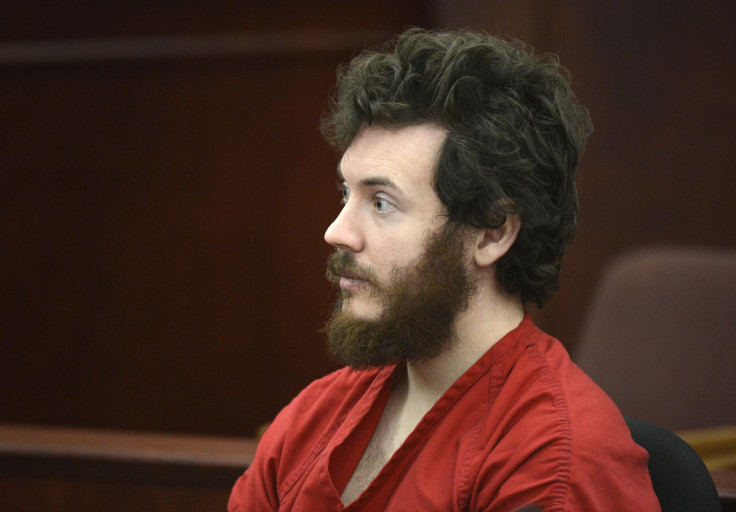In Aurora Shooting Trial, Psychiatrist Testifies Gunman James Holmes Was Legally Sane

A little over 34 months since James Holmes killed 12 people and injured dozens more at the Century 16 movie theater in Aurora, Colo., a psychiatrist involved in the murder trial has concluded Holmes was legally sane at the time of the shooting.
On Thursday, Dr. William Reid was the first mental health professional jurors heard from in the case deciding Holmes’ sanity. The decision will ultimately serve as the linchpin in deciding Holmes’ fate, as the shooter initially pleaded not guilty by reason of insanity before the trial began in late April, despite his early confession to the murders.
Reid’s introduction into the court proceeded shakily. In Colorado, expert witnesses are prohibited from commenting on defendants’ mental state at the time the crime was committed, but when Arapahoe County District Attorney George Brauchler questioned Reid about the legal standard for insanity, Reid answered a different question: He made a direct judgment about Holmes’ sanity. Holmes’ attorney Daniel King quickly asked the judge for a mistrial, a decision that would have set the trial back five weeks to square one.
But after an hour-long recess, Judge Carlos Samour Jr. eventually decided against it. The trial would continue, provided Reid’s answers complied with the letter of the law. His answers could only illustrate the human capacity for insanity, not comment on specific instances.
That responsibility is up to the defense attorneys, relying on evidence gathered by people like Reid. This includes the some 300 hours he spent researching the events surrounding the July 20, 2012 shooting, reading the tens of thousands of document pages sent to him, and the interviews he conducted with doctors that had interviewed Holmes.
Reid himself had spent 22 hours interviewing the shooter, the recording of which the jurors watched on Thursday with a warning that by the time of filming — roughly two years after the attack — Holmes had been taking low-dose drugs for depression and psychosis. In the video, the only one of Holmes’ sessions to be recorded, Reid is seen asking about any regrets Holmes may have about the shooting and the reactions to it, from his family and the public. Holmes’s answers rarely extend past a simple yes or no.
The Science Of Insanity
The difference between a life sentence and the death penalty will, effectively, be left up to agency. Colorado is one of 11 states that put the burden of proof for insanity on the prosecution. In weighing the testimony of Reid and others, jurors will determine how aware, how intentional, the killing spree really was. For that, psychiatrists make their evaluations based on the defendant’s ability to make clear-headed decisions and understand the gravity of his or her actions.
Dr. Howard Forman, a forensic psychiatrist who is not involved with the trial, says a lack of discretion can indicate the detachment typically found in insanity cases, such as a thief who makes no point to conceal the goods on the way out. “Planning is important, but what would be more damning is planning which demonstrates an understanding that what you’re doing is wrong,” Forman said. In the notebooks Holmes kept before the attack, he eliminated airports as a possible location due to high security. A dark movie theater would be less risky.
“My opinion is that, whatever he suffered from, it did not prevent him from forming the intent and knowing what he was doing and the consequences of what he was doing,” Reid testified during the trial.
Other opinions from the courtroom focused on Holmes’ sense of presence in answering Reid’s questions. “The videos are proof he's far from insane, in my opinion,” said Sandy Phillips, according to The Denver Post. Phillips’ daughter, Jessica Ghawi, was one of the victims who died in the attack.
Published by Medicaldaily.com



























